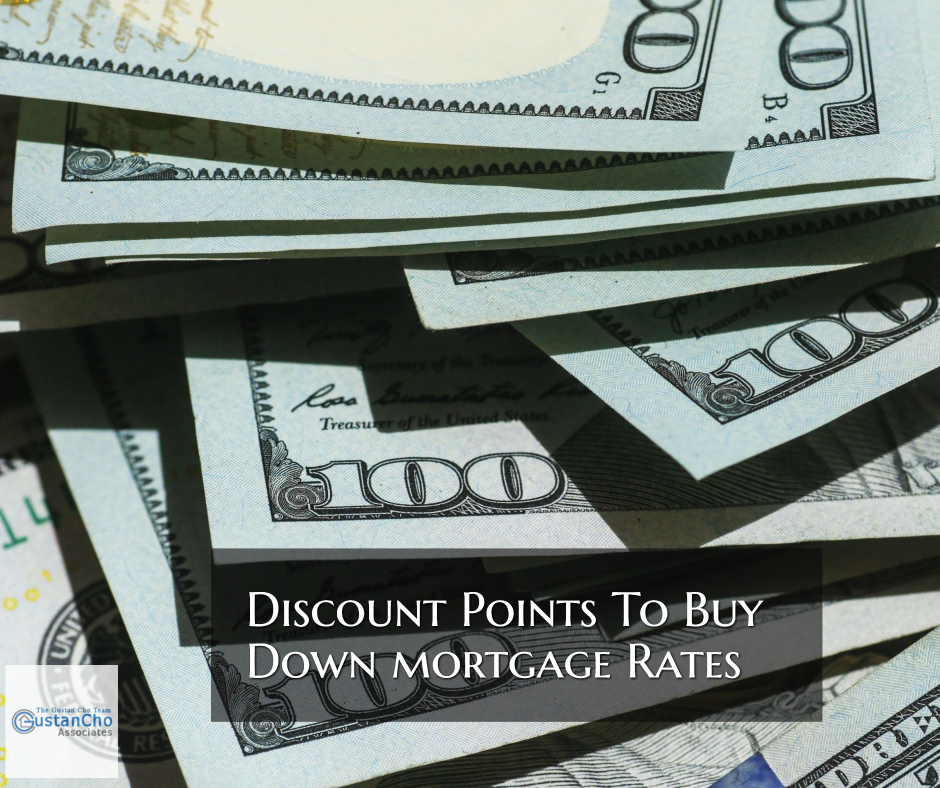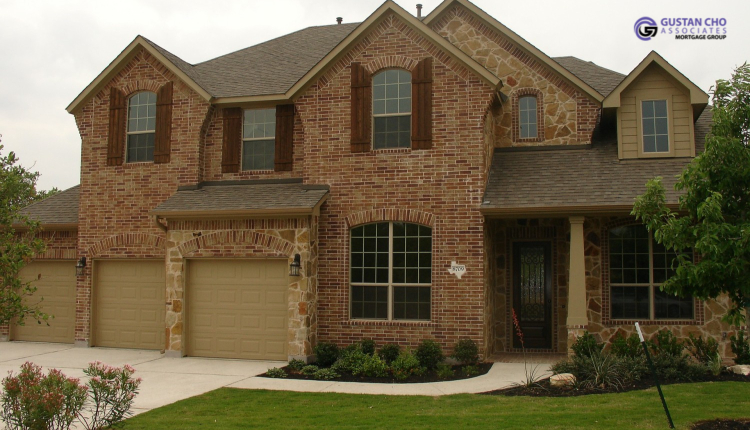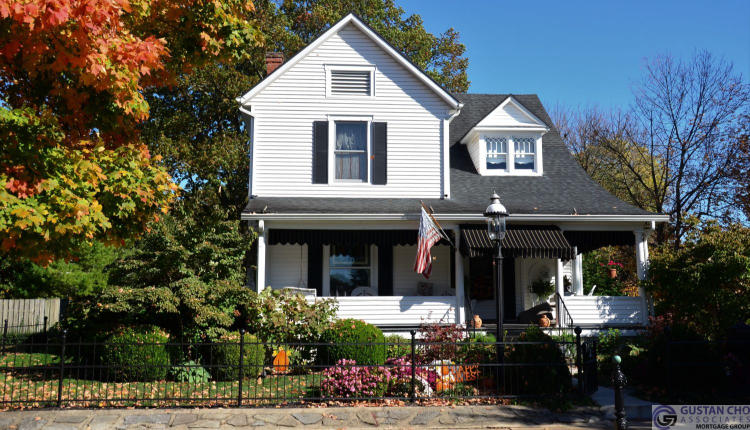Buying Down Mortgage Rates With Discount Points
Homebuyers and homeowners can get lower rates by buying down mortgage interest rates with discount points. Discount points are origination fees charged by lenders in lieu of getting lower mortgage rates. However, borrowers should buy discount points to buy down rates if they intend on not refinancing their home loan for at least five or more years.
How Are Mortgage Rates Priced By Lenders?
There are times when lenders charge discount points due to loan-level pricing adjustments (LLPA). For example, if a borrower has a 580 credit score and the maximum rate for a 580 credit score borrower on an FHA loan is 4.25%, the lender may have a 2.0% discount point loan level pricing adjustment. The 2.0% discount point is an origination fee for a 580 credit borrower on an FHA loan due to the lender taking a risk. The 2.0% discount point LLPA is part of the borrower’s closing costs.
What Are Discount Points Charged By Lenders?
Borrowers who have LLPAs due to lower credit scores should get sufficient seller’s concession so they can cover the discount points due to having a lower credit score. Discount points can be covered with the seller’s concession because they are part of the borrower’s closing costs. If a borrower has high credit scores and got quoted a low mortgage rate, they can get an even lower mortgage rate by buying down the rate by buying the rate down with discount points.
Using Discount Points To Get Lower Mortgage Rates
In refinancing as well as in a home purchase mortgage transaction, lenders usually offer borrowers to buy down their rates with discount points: One discount point equals one percent of the loan amount. For example, three points on a $100,000 mortgage loan would add $3,000 to the financing charges.
For borrowers who are planning on not selling their home in the near short term or not considering refinancing in the near future, buying down interest rates by paying points for a reduced mortgage rate may be a good idea. In this article, we will cover and discuss Buying Down Rates With Discount Points.
Should You Buy Down Your Interest Rate?
Analyzing various mortgage interest rates and associated points may save you money. As a rule of thumb, each point adds about one-eighth to one-quarter of one percent to the interest rate the mortgage company is offering. Generally, the lower the mortgage interest rates on the loan, the more points the lending institution will charge. Some companies offer refinancing with no points but generally charge higher interest rates.
Is It Worth Paying Points For a Lower Interest Rate?
The benefits of buying down mortgage interest rates are that the homeowner will save a lot of money if and only if they intend on staying at their property for a long time. There is a break-even point where it takes so many months and/or years to recoup the buy-down premium paid. If homeowners intend on not staying in their homes for more than three to five years, it may not be beneficial to buy down the mortgage rates.
How Does Buying Down an Interest Rate Work?
To decide what combination of rates and points is best for you, balance the amount you can pay upfront with the amount you can pay monthly.
The fewer times homeowners keep the loan, the more expensive points become. For homeowners planning on staying in their homes for a long time, then it may be worthwhile to pay additional points to obtain a lower interest rate.
Buying Down Mortgage Interest Rates With Seller Concessions

Most lenders offer to finance the points so that borrowers do not have to pay them upfront. This means that the points will be added to your loan balance, and borrowers pay a finance charge on them. Although this may enable borrowers to get financing, it also will increase the number of monthly payments. On home purchase transactions, homebuyers can use seller concessions for buying down mortgage interest rates. FHA loans allow borrowers to get up to a 6% seller concession from the home seller to use towards closing costs.
Seller Concessions Can Be Used To Buydown Rates With Discount Points
Seller concessions can be used to buy points in buying down mortgage interest rates. Conventional loans allow up to 3% seller concessions from the home seller to the home buyer on primary owner-occupant homes. Second-home purchases and 2% seller concessions on investment home financing. VA loans allow up to 4% in seller concession.
What Is Seller Concession In Real Estate?
USDA loans allow up to 6% seller concessions. Homebuyers need to use up all of their sellers’ concessions on a home purchase. Any overage seller concessions need to go back to the seller.
Whenever there are seller concession overages, loan officers should use those proceeds to buy down the mortgage interest rates with points.
Discount Points For Origination Fees Charged By Lenders
Discount Points are also referred to as mortgage points. Mortgage discount points are offered by mortgage lenders for borrowers to be able to purchase them in lieu of lowering mortgage rates. Mortgage Points are costs and fees that enable borrowers to get lower mortgage rates versus par market rates.
Borrowers can lower interest rates by Buying Down Mortgage Rates With Discount Points. This enables home buyers to lower their monthly housing payments. In the following paragraphs, we will cover and discuss Buying Down Discount Points To Lower Mortgage rates.
Understanding Discount Points and How Points Work To Lower Rates
One discount point is equivalent to 1.0% of the loan amount. So on a $200,000 loan balance, one discount point will cost borrowers 1.0% of $200,000 or $2,000. Buying Down Mortgage Rates With Discount Points will lower interest rates over the whole term of the mortgage loan. Buying Down Mortgage Rates With Discount Points is a great strategy for homebuyers who intend on living in their homes for a longer term.
How Does Buying Down Mortgage Rates With Discount Points Work?
Buying Down Rates With Discount Points is not recommended for first-time home buyers who intend in selling and/or refinancing their home loan within 3 to 5 years.
It is more geared towards homebuyers who intend to live in their homes and not refinance for at least 10 or more years. The longer homeowners on intending in their homes, the more money they will save over the term of their loan due to lower interest rates.
Discount Points As Origination Fees
Lenders have a maximum cap on the highest mortgage rates they can charge. In general, the lower the borrower’s credit scores, the higher the rate lenders charged. Loan level pricing adjustments (LLPA) are pricing hits charged by lenders for the lender taking on a higher risk. The lower the borrower’s credit scores, the higher the mortgage rates. This is because lower credit score borrowers are considered higher risk.
Loan Level Pricing Adjustment HIts For Mortgage Rates
Higher risks taken on by the lender mean higher rewards. The higher rewards for lenders are higher rates. For example, mortgage rates will be high for borrowers with a 500 credit score. There is a maximum cap a lender can charge for borrowers with low rates. Therefore, the lender will charge mortgage points for lower-rate borrowers.
Discount points as part of origination fees are common in manual underwriting. Borrowers with under 600 credit scores can expect to pay discount points as part of their origination fee.
How Mortgage Rates Affect DTI and Housing Payment
One question home buyers should ask is how discount points affect their mortgage loan. The average mortgage loan balance in the United States is $200,000. Let’s take a case scenario with the chart below:
Mortgage Loan Amount Financed: $200,000
| Category | No points | 1 point | 2 points |
| Cost per point(s) | 0 | $2,000 | $4,000 |
| APR* | 4.5% | 4.25% | 4% |
| Monthly payment** | $1,013.37 | $983.88 | $954.83 |
| Monthly payment savings | NONE | $29.49 | $58.54 |
| Break-even(time to recover point costs) | NONE | 68 months | 68 months |
| Total payment savings on a 30-year loan | NONE | $10,616.40 | $21,074.40
|
The above chart and interest rates are for illustration purposes only and do not reflect actual mortgage rates today. These are not actual amounts of discount points and rate buydown. This illustration is for basic case scenario purposes and only principal and interest figures are calculated. Contact us at 800-900-8569 or text us for a faster response or email us at gcho@gustancho.com for actual figures. A licensed loan originator licensed in your state can go over actual rates and terms.
Net Tangible Benefit and Break-Even Point
Residential Mortgages are heavily regulated by federal and state mortgage regulators. It is important for loan officers to consider net tangible benefits to borrowers before offering them buy mortgage points. Loan officers need to consider what the break-even point is when borrowers are buying discount points. How long does it take borrowers to break even on the fees of the points?
How Long Are You Planning On Keeping Your Home Purchase?
If the home buyer is buying a starter home and is planning on upgrading to a bigger home in three but will take 5 years to recoup discount points, this does not offer a net tangible benefit for borrowers. This practice will be illegal. However, if the home buyer plans to stay in their new home purchase for ten or more years and the break-even point is 3 years, this would make sense The borrower will get a net tangible benefit on their mortgage.
How Long Does It Take To Recover Discount Points?
The way to figure out how long it takes for the break-even point is by dividing the costs and fees of discount points by how much money borrowers will be saving on their mortgage payments. The figure derived is the time it takes for the monthly housing payment savings to equal the fees of mortgage points.
Buying Down Mortgage Rates With Discount Points With Seller Concessions
Most home buyers will get seller concessions from home sellers to cover their closing costs. Seller concessions can only be used for closing costs. It cannot be used for the down payment. Sellers cannot give any overages of sellers’ concessions to home buyers. Overages in seller concessions need to be returned to sellers.
Discount Points are considered closing costs. Most loan officers will recommend buying down mortgage rates with discount points with seller concessions overages. Getting the maximum seller concessions is a wise move for buyers planning on buying down mortgage rates with discount points.
How Much Do You Save Over Mortgage Term With Rate Buy Down?
How Does Buying Down Mortgage Interest Rates Work? A mortgage rate buydown is paying a percentage of the loan, also known as discount points, to reduce the mortgage rate. Borrowers can buy down with discount points from the original mortgage rate that is being quoted to borrowers. When borrowers apply for a mortgage loan, the loan originator will give borrowers several options.
As an example, say a borrower applied for a mortgage loan:
- The best mortgage rate the loan originator can offer the borrower with no points is 5%
- Borrowers who feel that they intend on keeping the home for a while and feel that mortgage rates are low may want to explore buying down the mortgage interest rates
Borrowers have the option to get lower rates by buying down rates with mortgage points. Maybe by one percent of the loan amount, the mortgage rate buy down, and the new interest rate might be 4.75%; Maybe by paying 2 points the mortgage rate might drop to 4.5% (This is a hypothetical case scenario). In this article, we will discuss and cover how to get lower mortgage rates by buying it down with discount points.
Mortgage Rate Buy Down With Discount Points
Borrowers who decide to buy down mortgage rates will be classified as a discount fee on mortgage disclosures. The discount fee is normally tax-deductible. Mortgage borrowers can buy down their mortgage rates by paying upfront points.
Buying down mortgage rates is recommended only for borrowers who plan on living in their home for the long term and not refinancing their home loan in the very near future. One point is equivalent to one percentage point of the mortgage loan amount.
Lower Mortgage Rates By Paying Points

Buying down mortgage rates varies with different lenders. Sometimes, mortgage rate reduction might only be 1/8 of a percent for a one-point mortgage rate buy down: It might not be worth it. Other lenders might reduce the mortgage rate by 0.50% for a one-point mortgage rate buy-down. This will be worth paying the points. There is no set price on how much mortgage rates will get reduced by paying points This is because it also depends on the mortgage markets and where the interest rates are.
Is Mortgage Rate Buy Down Beneficial?
Mortgage interest rates depend on the risk the lender takes on the borrower. In the following paragraphs, we will cover buying down mortgage rates with discount points. We will also cover and discuss what determines mortgage rates.
How Credit Scores Affect Mortgage Rates
The lower the borrower’s credit scores, the higher the risk the lender has so the higher mortgage interest rates
How Loan To Value Impact Mortgage Rates
The lower the LTV, the less risk the lender has because the borrower has more skin in the game, therefore, larger down payments (lower LTV) mean lower mortgage rates
How Types of Properties Affect Mortgage Rates
Condominiums, townhomes, and two to four-unit properties are classified as higher risk than single-family homes. So there are normally mortgage rate adjustments on non-single-family homes. Discuss buying down your mortgage rates and whether buying down mortgage rates makes sense with a loan originator to see if it will be worth paying the upfront point for the reduced interest rate.
Is a Rate Buy Down Worth It For First-Time Homebuyers?
For homeowners who are only planning on staying in their homes for a short while, it might not be worth buying down mortgage rates with discount points. However, for homeowners who intend on staying in their homes for more than 5 years, it might be well worthwhile to pay points for a mortgage rate buy-down.
A loan officer can assist with the pros and cons. They can go over a chart on the amount of savings versus the points that homeowners will be paying for the mortgage rate buy-down.
Using Seller Concessions For Discount Points
Seller Concessions are when a home seller will give a home buyer either a percentage and/or a set amount to cover their closing costs. Any overages of seller concessions normally go to pay down the mortgage interest rates.
Overages in seller concessions cannot go to the home buyer. Needs to go back to the seller under mortgage regulations. Most loan officers just use the overages in seller concessions to buy down the rate for the borrower.
Maximum Seller Concessions Allowed
Here are the maximum amounts of seller concessions allowed on various loan programs:
- A 6% sellers concession is allowed on FHA loans
- 4% of seller concessions are allowed on VA loans
- 6% sellers concessions are allowed on USDA loans
- 3% sellers concessions are allowed on Conventional loans for owner-occupant properties and second homes
- 2% sellers concessions are allowed on Conventional loans for investment properties
Most NON-QM Loans will accept up to 6% in seller concessions.
Buying down rates with discount points is not for everyone. Discount points are not cheap. One discount point is one percent of the loan amount. Therefore, it will take some time to recover. Loan officers have a fiduciary duty to make sure their clients have a net tangible benefit before recommending buying down rates with discount points.







